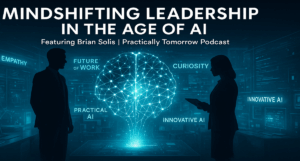Special guest post by Tom Rath, author of Are You Fully Charged?: The 3 Keys to Energizing Your Work and Life
The concept of bringing people together in groups, tribes, or organizations is based on the fundamental premise that human beings can do more collectively than they can in isolation. Hundreds of years ago, people banded together for the sake of sharing food and shelter and keeping their family safe. The basic assumption was that the association gained by joining a group would benefit individuals and their loved ones. As a species, humans are better off together than they are apart. Simple enough.
This is why I was taken aback by research Gallup conducted on this topic. When workers across the United States were asked whether their lives were better off because of the organization they worked for, a mere 12 percent claimed that their lives were significantly better. The vast majority of employees felt their company was a detriment to their overall health and well-being.
How did this relationship between individuals and organizations go so wrong? One catalyst for this change was the Industrial Revolution, when people almost literally became cogs in big machines and assembly lines. The premise was that an employee would work at a routine task for a fixed number of hours in exchange for a set amount of hourly pay. While this led to a great deal of automation, innovation, and productivity growth, it also resulted in unintended side effects that linger today.
These transactional relationships made it easy for companies to work someone to the point of burnout, knowing they could hire the next person in line. Everything from organizational hierarchies to compensation structures sent a simple message: You are replaceable. At almost every turn, classic economics ruled. No one was even asking whether people’s lives were better because they were part of a particular organization.
When I entered the workforce in the 1990s, the general expectation was not much different. A company offered you a job performing a specific task. If you completed that task, you earned a wage. Some jobs also provided benefits like health insurance, retirement funds, or other incentives to retain employees. A few companies even asked employees if they were satisfied with their jobs.
Near the start of the 21st century, some companies began asking if their employees were emotionally engaged (not just satisfied) with the work they were doing each day. These inquiries created a major shift; managers and leaders were finally paying attention to whether people were not just showing up but also giving all of their “discretionary effort” to the organization.
Employers are now quite savvy about whether you are engaged or disengaged while you are on the job. They know what the organization is getting out of you. However, in most cases, you do not know how, or even if, your life is improving because you are part of that organization.
This relationship needs to change for the foundational compact between individuals and organizations to succeed. The future of work lies in redefining it as doing something that makes a difference each day. Work is a purpose, not a place. Work is about productively applying your talent. Work is about making your life, and the lives of other people, stronger as a product of your efforts.
Portions of this post were adapted from Are You Fully Charged?, by Tom Rath. Silicon Guild, May 2015
Photo Credit: Shutterstock






Great post! I think it’s super important for people to find jobs they love. Definitely something to think about.
The Office Stylist
http://www.theofficestylist.com
Nice post! I was just reading about large corporations starting a engagement survey to help improve high turnover rate. I personally think it is important to find a job that you love and a employer that you like the different they are going.
Great post!
Very interesting how the relationship between employers and their employees is changing.
When reading this post, it occurred to me that if a brand is going to be successful nowadays, it needs to transform all of their relationships. If they are going to earn more business, brands must have a closer and more connected relationship with their customers.
The same can be said for its employees. Companies need to also build a strong “employer brand” in order to connect to their employees and make them feel as if their work actually has purpose.
I’m sure there are other types of relationships that brands have that will need to change as well. Thanks for writing this! Your posts always get me to think deeper about what I’m doing!
Jeff, great point about that extending to all relationships. The employee/company relationship is pretty much one-directional today (in terms of proving the value added for each party) so we have a long ways to go…
Would be interesting to see how this also affects the productivity among the employees.
One would almost assume that by merely acknowledging the staff and signalling that you care about them they would get an energy injection which would lead to improved productivity.
As a Millennial about to enter the workforce, it is quite disappointing to read this because there is truth to it. To quote Jon Foreman, “I want to thrive, not just survive.” But how can you do this when you are viewed as replaceable time by the next in line? I believe people are passionate about their work when they love what they are creating.